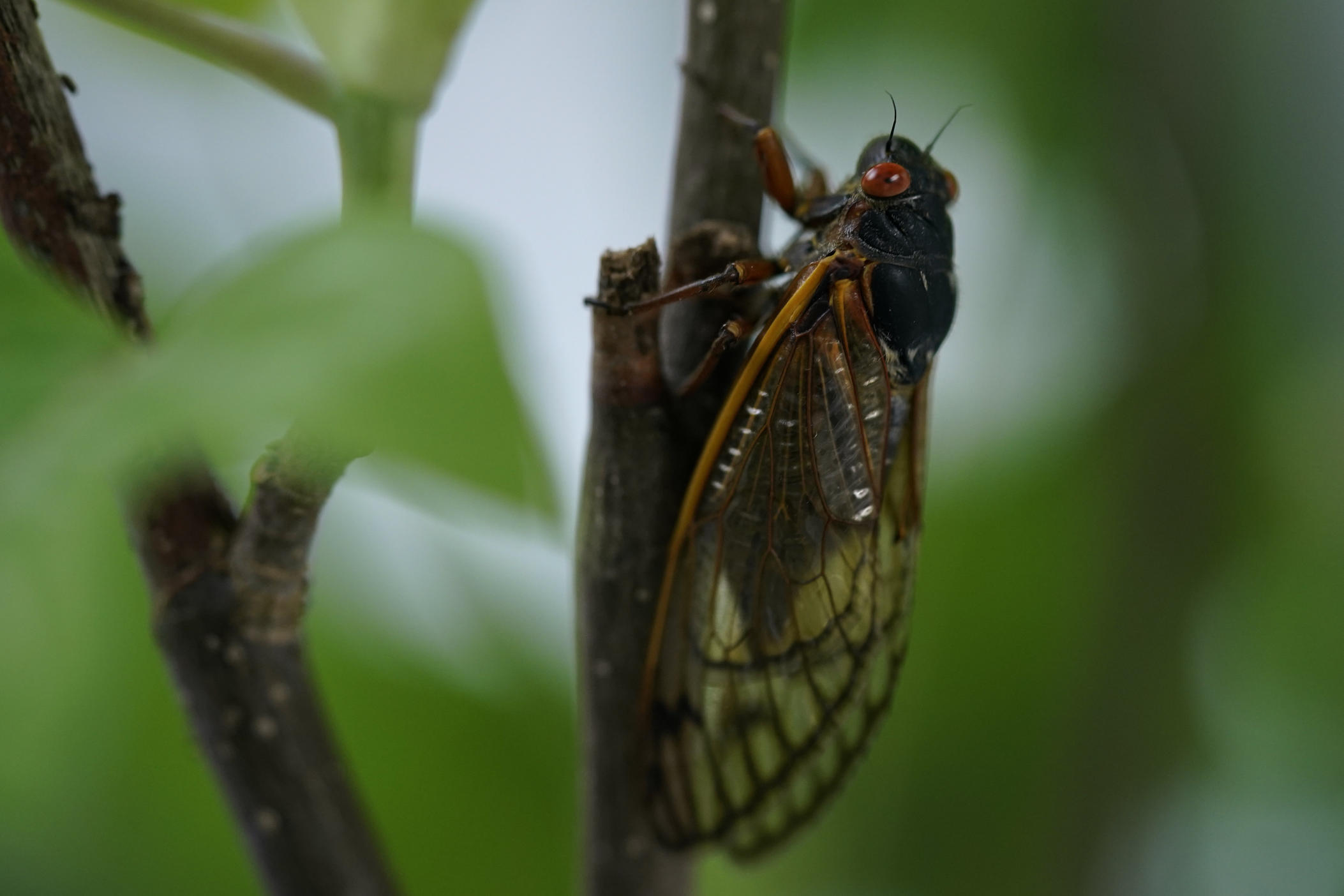Section Branding
Header Content
A huge brood of cicadas is set to emerge. Here's what an entomologist says Georgians should know
Primary Content
As we creep closer to May and temperatures warm across the state, a particular brood of noisy cicadas burrowed beneath the surface are preparing to dig their way from the underground to mate.
Brood XIX (Brood 19) is Georgia’s only 13-year cicada, the largest periodical cicada brood in North America, spanning at least a dozen states in the Southeast.
The brief, but spectacular, emergence has entomologists buzzing with excitement.
“Any day now, we probably will be seeing pictures of this year's emergence and people will start hearing emerging cicadas calling,” Dr. Nancy Hinkle, an entomologist at the University of Georgia, told GPB.
Hinkle said Georgians can expect to see Brood XIX, also known as the "Great Southern Brood," beginning in May. Larger numbers of cicadas won’t be seen until closer to the middle of the month, but they will mostly disappear in June.
Not every part of the state will be inundated with the insects. Research conducted by Hinkle and others when the same brood emerged in 2011 showed Middle Georgia, the northwestern part of the state, and southern tier counties, like Coffee and Bacon counties, with higher numbers of the red-eyed bugs.
According to Hinkle, the cicadas mean us no harm.
“They are perfectly harmless," she said. "They cannot bite. They cannot sting. They do not smell. They do not affect humans. They don't eat plants.”
She suggests those who experience the Great Southern Brood just sit back, relax and enjoy the “music.”


